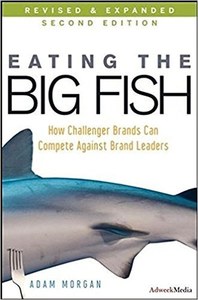Read These 5 Books To Build Your Brand Successfully in The Digital Age

With the expansion of the digital world, advertising and branding are trending and predictions say, will continue to do so.
This list combines the best of classic thinking about branding, and how advertising builds brands, with the addition of new work that explains the design thinking behind the power brands of the digital revolution.
- Thinking Fast and Slow – Daniel Kahnemann (Allen Lane 2011)

How do humans process information? Kahnemann answers this significant question and shows that we are instinctive, lazy and don’t really like to think hard. In fact, we are frequently irrational; we post-rationalize our instincts and use mental shortcuts to make decisions (for instance picking the brand that seems most popular). His insights explain much that is successful in brand communications, whether it’s for television or a new mobile application.
2. Decoded: The Science Behind Why We Buy – Phil Barden (Wiley 2013)

This book offers an application of Kahnemann’s insights in the practice of brand communications. Moreover, this particular book starts with a brilliantly simple explanation of System 1 and System 2 thinking and is packed with examples of behavioural science in action.
3. How Brands Grow (Books 1 and 2) – Byron Sharp (Oxford 2012 and 2016)

Sharp exposes the ‘Loyal Buyer’ fallacy; your brand’s customers are really ‘the buyers of other brands who occasionally buy your brand’. Moreover, long-term brand health depends on continually being mentally and physically available to prospective and light buyers: they represent the most potential.
4. Marketing in the Era of Accountability – Binet and Field (IPA 2007)

This particular book was a hugely influential book about advertising effectiveness. The authors reviewed over 800 case histories in the IPA (Institute of Practitioners in Advertising)’s databank to draw out conclusions about what works best in the field.
5. Eating the Big Fish – Adam Morgan (Wiley 2009)

Successful challengers often lead with their beliefs and motivations (the ‘why’ not the ‘what’), they seek fame/publicity, not just awareness and they often over-commit to a particular audience to achieve cut-through. A great challenger brands tell good, shareable stories and that is what gets them talked about and gains the commitment of buyers in the early days.
